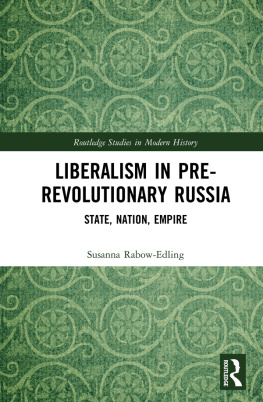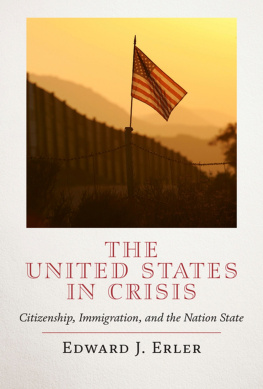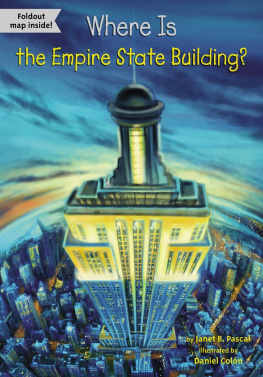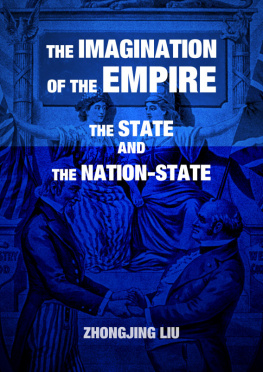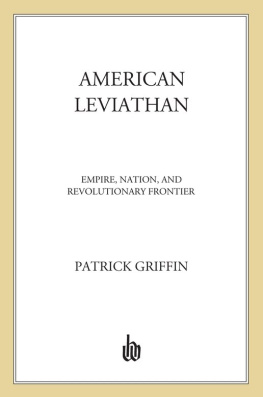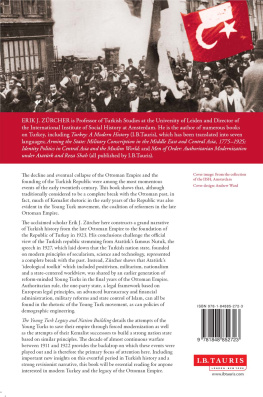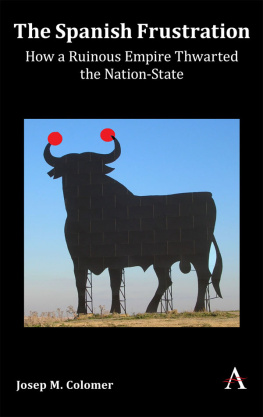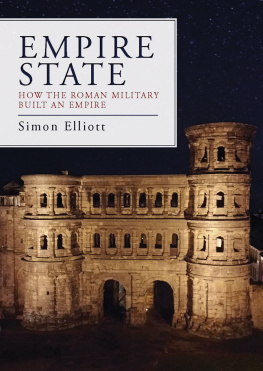Yan Sun - From Empire to Nation State
Here you can read online Yan Sun - From Empire to Nation State full text of the book (entire story) in english for free. Download pdf and epub, get meaning, cover and reviews about this ebook. year: 2020, publisher: Cambridge University Press, genre: Politics. Description of the work, (preface) as well as reviews are available. Best literature library LitArk.com created for fans of good reading and offers a wide selection of genres:
Romance novel
Science fiction
Adventure
Detective
Science
History
Home and family
Prose
Art
Politics
Computer
Non-fiction
Religion
Business
Children
Humor
Choose a favorite category and find really read worthwhile books. Enjoy immersion in the world of imagination, feel the emotions of the characters or learn something new for yourself, make an fascinating discovery.
From Empire to Nation State: summary, description and annotation
We offer to read an annotation, description, summary or preface (depends on what the author of the book "From Empire to Nation State" wrote himself). If you haven't found the necessary information about the book — write in the comments, we will try to find it.
From Empire to Nation State — read online for free the complete book (whole text) full work
Below is the text of the book, divided by pages. System saving the place of the last page read, allows you to conveniently read the book "From Empire to Nation State" online for free, without having to search again every time where you left off. Put a bookmark, and you can go to the page where you finished reading at any time.
Font size:
Interval:
Bookmark:
From Empire to Nation State
Many scholars perceive ethnic politics in China as an untouchable topic due to lack of data and contentious, even prohibitive, politics. This book fills a gap in the literature, offering a historical-political perspective on Chinas contemporary ethnic conflict. Yan Sun accumulates research via field trips, local reports, and policy debates to reveal rare knowledge and findings. Her long-time causal chain of explanation reveals the roots of Chinas contemporary ethnic strife in the centralizing and ethnicizing strategies of its incomplete transition to a nation state strategies that depart sharply from its historical patterns of diverse and indirect rule. This departure created the institutional dynamics for politicized identities and ethnic mobilization, particularly in the outer regions of Tibet and Xinjiang. In the twenty-first century, such factors as the demise of socialist tenets and institutions that upheld interethnic solidarity, and the rise of identity politics and developmentalism, have intensified these built-in tensions.
Yan Sun is Professor in the Department in Political Science at Queens College and at the Graduate Centre, The City University of New York.
From Empire to Nation State
Ethnic Politics in China
Yan Sun
City University of New York


University Printing House, Cambridge CB2 8BS, United Kingdom
One Liberty Plaza, 20th Floor, New York, NY 10006, USA
477 Williamstown Road, Port Melbourne, VIC 3207, Australia
314321, 3rd Floor, Plot 3, Splendor Forum, Jasola District Centre, New Delhi 110025, India
79 Anson Road, #0604/06, Singapore 079906
Cambridge University Press is part of the University of Cambridge.
It furthers the Universitys mission by disseminating knowledge in the pursuit of education, learning, and research at the highest international levels of excellence.
www.cambridge.org
Information on this title: www.cambridge.org/9781108840293
DOI: 10.1017/9781108885454
Yan Sun 2020
This publication is in copyright. Subject to statutory exception and to the provisions of relevant collective licensing agreements, no reproduction of any part may take place without the written permission of Cambridge University Press.
First published 2020
A catalogue record for this publication is available from the British Library.
ISBN 978-1-108-84029-3 Hardback
ISBN 978-1-108-79441-1 Paperback
Cambridge University Press has no responsibility for the persistence or accuracy of URLs for external or third-party internet websites referred to in this publication and does not guarantee that any content on such websites is, or will remain, accurate or appropriate.
To my father, Sun Zhixiang
October 11, 1933June 23, 2019
Distinguished Professor of Russian Language
This book represents almost a decade of work since I first became interested in the topic of Chinas ethnic politics in the wake of the Lhasa riot of March 2008 and the Urumqi riot of 2009. It is an accumulation of extensive field trips, conversations, and archival research in different regions of China. Ethnic politics is such a politically sensitive topic in China that few foreign (especially US) based scholars may be willing to undertake a project like this, for a lack of local access in China. Thus, I wish to thank the hundreds of people across China who have shared their time and knowledge to help me understand a highly delicate subject. Without them, this project would not have been possible, either physically or intellectually.
For introducing me to research resources, contacts, and trips in minority regions in China, I extend my heartfelt thanks to Professor Ma Rong of Beijing University, Professor Yang Minghong of Sichuan University, Mr. Ming Hao of the research office of the State Ethnic Affairs Commission (SEAC), and Mr. Rigzin Losel of the Tibetology Center of China. They are among the many scholars and policy analysts whom I have met at conferences on minority issues in China. Between them they represent four different ethnicities and diverse perspectives on Chinas ethnic policy. Professor Ma first introduced me to Xinjiang in the early 2010s by bringing me to two conferences in Xinjiang and then on field trips with his research team across southern Xinjiang. He also introduced me to a forum of ethnic scholars in Qinghai, a heavily multiethnic province. Professor Yang, during three summers between 2014 and 2017, brought me along with his research teams on field trips in Tibetan prefectures of Sichuan and several prefectures in Tibet itself. Mr. Ming Hao introduced me to several forums on minority issues in China, and through his assistance I was able to take field trips in Yanbian, a Korean autonomous prefecture. Mr. Losel, a Tibetan historian, introduced me to many aspects of intraelite politics in Tibetan history and local politics in contemporary Tibetan communities. Throughout my project I have benefited greatly from their local knowledge, their generosity to answer my questions, and their assistance with local access and resources.
For intellectual guidance and support, I owe enormous debts to Professor Dingxin Zhao of the University of Chicago and my colleague at CUNY, Professor Lenny Markovitz. Professor Zhaos astute knowledge of historical empires, and of Chinese political and social institutions both historically and in contemporary times, helped to sharpen my conceptual framework and empirical analyses. Despite his busy schedules between Chicago and Hangzhou, he took time to make informed and constructive comments throughout the entire manuscript. I am also grateful to him for opportunities to present parts of my project at the East Asia Forum at the University of Chicago and the western development symposium at Zhejiang University. Professor Markovitz, my long-time colleague at CUNY, has given me much moral and intellectual support throughout my career. He took time to read and comment on the entire manuscript. As co-editor for the Journal of Comparative Politics for decades, he has a knack for critical insights and valuable feedback. Without the encouragement and wisdom of these two professional colleagues, I may not have had the confidence to carry to completion a study whose subject matter can seem too contentious to handle with balance, dispassion, and patience. In addition, I am grateful to Dr. Andrew Mertha, previously at Cornell University and now at Johns Hopkins University, for reading my entire manuscript and offering constructive comments. In this connection, I also thank the anonymous reviewers for Cambridge University Press, whose criticisms and corrections helped to improve my manuscript.
For assisting me in local accommodation, travel, and research, I am indebted to many relatives in southern Xinjiang. Given the current political climate in the region, it is prudent to mention just three who would unlikely face any risk for having hosted a foreign-based relative/researcher. My cousin Ling, who passed away in 2017 at the age of forty-eight, was an agricultural specialist who worked with Uighur farmers throughout his career in a rural county of the Uighur south. My cousin Ping, unemployed since the late 1990s, introduced me to her world of downsized workers from local state factories. Finally, her husband Yong, who passed away in 2017 at the age of fifty-eight, was a staff member in a local government with rich knowledge of local politics. I benefited greatly from staying with them, joining in and observing their daily activities, interacting with their local communities, and visiting places which I could not have done otherwise. Born locally, their fluency in spoken Uighur gave me the necessary tools for local communication. I am also grateful to two other local cousins in whose homes I stayed, and to these and other relatives whose local knowledge and experiences have remained a source of reality checking for me.
Font size:
Interval:
Bookmark:
Similar books «From Empire to Nation State»
Look at similar books to From Empire to Nation State. We have selected literature similar in name and meaning in the hope of providing readers with more options to find new, interesting, not yet read works.
Discussion, reviews of the book From Empire to Nation State and just readers' own opinions. Leave your comments, write what you think about the work, its meaning or the main characters. Specify what exactly you liked and what you didn't like, and why you think so.



